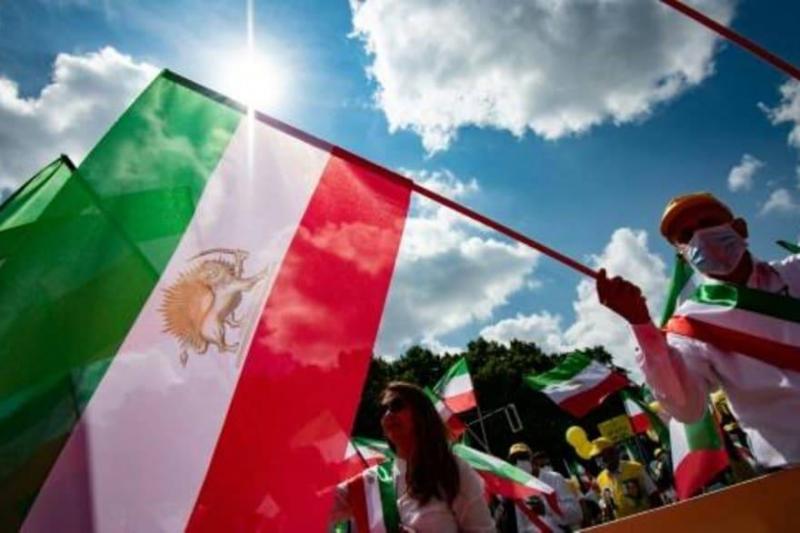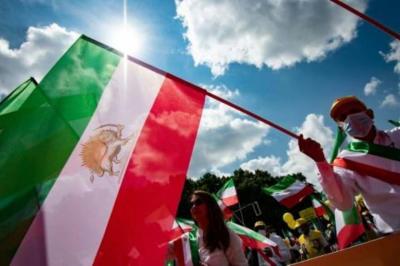Swedish judicial authorities announced on Tuesday that a former official from the Iranian regime will be tried in Sweden for his alleged role in a part of the mass executions that targeted opponents and were ordered by Ayatollah Ruhollah Khomeini during the summer of 1988. This marks a rare indictment in this extremely sensitive case.
According to the indictment, Hamid Nouri (60), who was serving as deputy prosecutor at the Kahrizak prison in Karaj, Iran at that time, is being pursued for committing "war crimes" and "murder," under Sweden's principle of universal jurisdiction for such offenses. Nouri is currently facing about thirty complaints from civil parties who are either victims, witnesses, or relatives of the victims. He was arrested in November 2019 at Stockholm Arlanda Airport while visiting Sweden and has been in temporary custody since then.
The trial is set to start on August 10 in Stockholm and is expected to conclude by mid-April 2022. For years, non-governmental human rights organizations, notably Amnesty International, have led campaigns for justice concerning what they consider extrajudicial executions that affected thousands of Iranians, mostly young people, across Iran during the period marking the end of the war with Iraq (1980-1988).
According to the Swedish prosecutor's office, this purging campaign specifically targeted activists from the opposing Mujahideen-e Khalq Organization, who were subject to execution orders issued by Ayatollah Khomeini, the founder of the Islamic Republic of Iran, following attacks carried out by the group against the regime at the end of the conflict.
Burden of Blood
Prosecutor Christina Lindhoff Carlson asserted in the indictment that "Hamid Nouri, between July 30, 1988, and August 16, at the Kahrizak prison in Karaj, Iran, in his capacity as deputy prosecutor, committed the deliberate killing of a very large number of prisoners supportive of or affiliated with the Mujahideen-e Khalq."
During this same period, Nouri is suspected of participating in the execution of other prisoners based on their ideology or beliefs, who were considered opponents of the "Iranian theocratic state," according to the prosecutor’s office.
In a decision made in December and published on Tuesday, the Swedish government approved the referral of Nouri to the judiciary regarding this sensitive case. One of the complainants, a member of the Mujahideen-e Khalq named Nasrallah Marandi, who was imprisoned between 1987 and 1989 in Kahrizak prison, told AFP that he felt "joy" following the indictment of Nouri but also "the burden of the blood of my fallen comrades." He stated, "I am ready to go to the end and bear the risks, and I will testify in court on September 2."
The lawyer for four civil parties, Kenneth Lewis, noted that the witnesses to this case "have seen many important things." He added, "We are confident that this man will be convicted."
Involvement of Other Iranian Officials
Nouri's defense attorney, Thomas Suderkvist, told AFP that "our client denies any allegations of involvement in the alleged executions of 1988." In early May, more than 150 figures, including Nobel laureates, former heads of state and government, and former UN officials, called for an international investigation into the 1988 executions.
The National Council of Resistance of Iran, the political wing of the Mujahideen-e Khalq, claims that the executions affected 30,000 individuals, but this number has not been verified by an independent source. Meanwhile, most human rights organizations and historians indicate that the actual number was between four to five thousand people.
This case is highly sensitive in Iran, with activists accusing current government officials of involvement, such as the newly elected Iranian president Ebrahim Raisi, who Amnesty International alleges was a member of the "death committee" responsible for the execution of thousands of prisoners in 1988 when he was an assistant prosecutor in the Revolutionary Court of Tehran. Raisi has previously denied any involvement in this file but has expressed appreciation for the "order" issued by Khomeini to carry out actions against those detainees.




